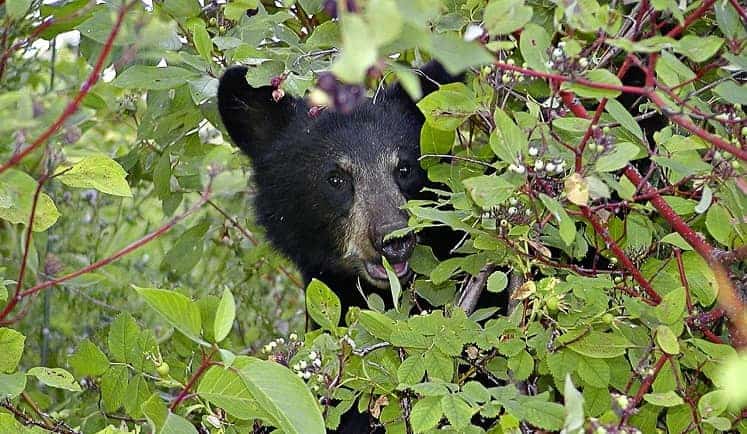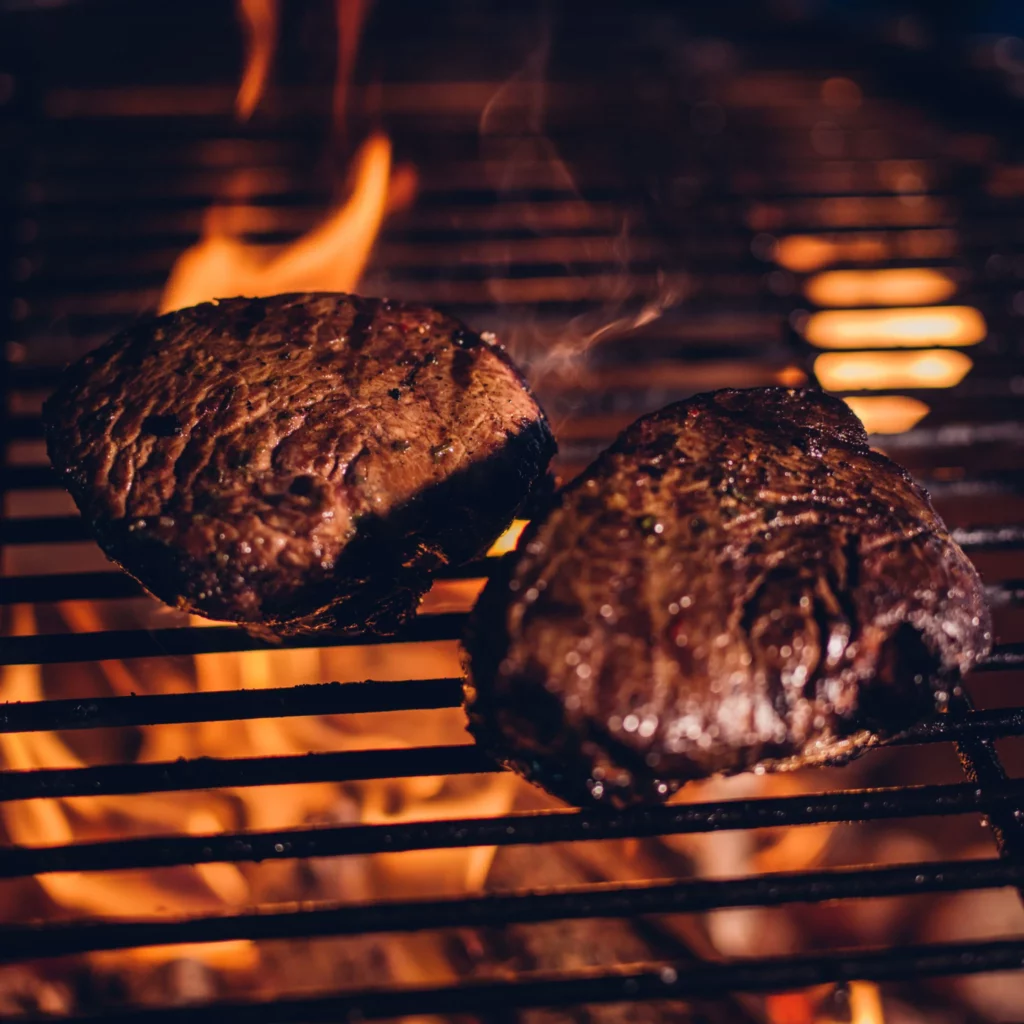Many hunters refuse to eat bear meat, despite it being both edible and surprisingly tasty when prepared correctly. Although bear meat has been part of the American diet for centuries, in recent years, it’s gained a bad reputation for being unpalatable and potentially hazardous to your health.
While you won’t find bear meat for sale at your local butcher, some businesses are licensed to sell bear meat in the US, although you may have to do some digging to find them.
Hunting bears is legal in many states, and you can keep and share the rewards. In a survival situation, it could be your best source of protein, but is bear meat safe to eat?
Is Bear Meat Safe to Eat?

Bear meat is both safe and palatable when prepared and cooked correctly. Like other game meats, bear contains a type of roundworm known as trichinella. Trichinella larvae cause the parasitic infection trichinosis, which causes diarrhea, vomiting, fever, and abdominal pain.
Trichinosis is easily treated with anti-parasitic drugs but can be fatal if left untreated. It occurs when you eat raw or undercooked meat containing trichinella larvae. Once ingested, these larvae develop into adult worms inside your small intestine.
You can avoid getting trichinosis from bear meat by preparing it according to proper food safety procedures.
The Mayo Clinic recommends cooking bear meat and meat from other wild animals “to an internal temperature of 160 F (71 C)” throughout and leaving it to rest for several minutes before serving.
Bear meat is fully cooked when there are no more traces of pink meat or fluid, particularly around the joints. You can also check the internal temperature with a meat thermometer, should you have one in your bug-out bag!
What Does Bear Meat Taste Like?

The flavor of bear meat is widely variable and heavily influenced by what the bear’s been eating. A bear that’s spent the last week eating berries, fruit, and honeycomb will taste a lot better than one living off a diet of salmon.
Canadian hunter George Gruenefeld describes spring bear meat as having a
“strong but pleasant flavor” while “a bear that’s been scarfing down fish… reeks worse than low tide on a hot August afternoon.”
Meat from bears hunted in spring is sweet and tender because the bear’s been eating young vegetation. On the other hand, a bear killed in the fall will have a layer of fat that makes the meat coarser.
To some, bear resembles a strong-tasting beef with less fat, while others describe it as having a similar taste to wild venison.
Is it Legal to Hunt and Eat Bears?
In most states, you’re allowed to hunt and eat bears, but selling the meat is illegal unless you have a permit. If you kill a bear, you can share the meat with friends and family but not make a profit from it.
Bear hunting requires a state permit and is only allowed during the specified hunting season. In Maine, you can legally hunt bears from late August to late November, while in New Jersey, it’s restricted to just 10 days – five in October and five in December.
Most states only allow the hunting black bears, with grizzlies and brown bears protected. Non-residents can hunt these bear species in Alaska, but only if accompanied by a licensed resident.
The number of bears you can kill varies between states, as do the permitted hunting methods. In New Jersey, you can only take one bear weighing 75 pounds or more, and you’re not allowed to shoot or even “have a loaded weapon within 300 feet of a baited area.”
In Alaska, bear hunting is permitted year-round; you only require a hunting license. The bag limits are also bigger, and “in most Interior units, each hunter may take more than one black bear each regulatory year.”
Is Beat Meat Good for You?
Bear meat is healthier than beef because it’s lower in fat. A 100g portion of bear meat contains just 8.3% fat, while the same serving of beef contains up to “contains up to 20.7% fat.”
It is fattier than other wild meats, like elk and buffalo, but is still a healthy source of protein, with each 100g portion containing approximately 20g of protein.
Bear meat has higher than average iron levels, with a 100g portion containing “a whopping 7.2 milligrams of iron.” Iron is an essential component of hemoglobin, without which our bodies struggle to transport oxygen effectively, leading to fatigue.
Although high in cholesterol, bear meat is low in sodium and a good source of vitamin B12, zinc, and riboflavin.
Bear meat may not have all the health benefits of elk, but it’s not as bad for you as heavily processed meats like sausages and beef burgers.
How to Prepare Bear Meat
Bear meat is more straightforward to cook than lean game meats because the fat keeps the meat moist and prevents it from drying out.
Many people marinate their bear meat before cooking it, saying it improves the flavor and eliminates the bear smell. Others recommend parboiling it first to remove the excess fat.
Marinated bear meat is better for steaks and roasts, while you can turn parboiled bear meat into tasty stews and soups.
Whichever recipe you choose, ensure you cook your bear meat thoroughly to eliminate any risk of trichinosis. If making a roast, you need to cook bear meat at “375 degrees F for 20-25 minutes per pound,” while a bear stew should simmer for two to three hours.
There are some intriguing and mouth-watering recipes available online, from tender roasts to hearty stews. You could also experiment with making bear sausages or even bear jerky!
Conclusion
Bear meat is high in protein, low in sodium, and packed with iron, making it an excellent food for survivalists. It needs to be cooked thoroughly to remove nasty parasites like trichinella, but it can be both delicious and tender once cooked.
Bear meat varies in flavor, depending on the time of year and the diet of the bear in question. Bears living off a fish-based diet won’t taste anywhere near as good as one eating fresh spring shoots and berries.
Hunting and eating black bears in most states is legal, although permits may be required. You can also share bear meat with friends and family, but you’re not allowed to sell it.
If given a choice between a meal of edible leaves, or a combination of bear meat and edible leaves, I think I’d go for the latter, even though my love for Winnie the Pooh makes the thought of eating bear hard to swallow!


